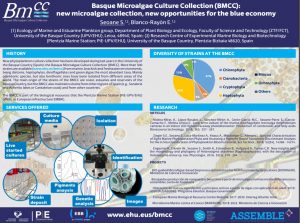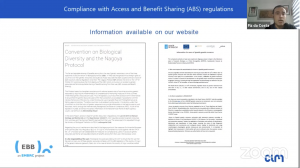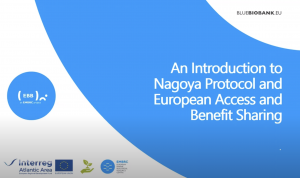The next January 29th, members of the EBB project and the EMBRC ABS working group organize the Workshop: “How to Do Nagoya: access to marine genetic resources in compliance with ABS regulations”, as part of the agenda of the ASSEMBLE Plus Conference 2021. The main goal of this workshop is to share with the service providers, and its users from academia and industry, in Assemble+ the work carried out within EMBRC to help such community to comply with their Access and Benefit Sharing (ABS) duties in the light of the Nagoya protocol when utilizing marine genetic resources.
One of the main aims of the European Blue Biobank (EBB) project is supporting biobanks and culture collections to comply with these regulations as holders and providers of marine genetic resources. According to this, EBB project has been providing support to end-users to comply with ABS regulations for their access to marine genetic resources. With the aim of being a reference for other users, and also for biobanks and culture collections, EBB project together with the ABS working group of EMBRC, have produced a Best Practice Guidelines on ABS for access to marine genetic resources, and a “step by step” short guide. Both documents will be presented by Anne Emmanuelle Kervella and Ian Probert from Biological Station of Roscoff, after an introduction of the EMBRC’s ABS Working Group by Nicolas Pade, EMBRC Executive Director.
The day will be concluded with a round table where some users of services and resources at marine biological stations will share their experience. Arnaud Larroquete, EMBRC ABS Compliance Officer, will also explain the results of an ABS audit of genetic resources in collections of Atlantic marine stations, conducted on the frame of EBB project.
The event will take place on-line and the registration is still opened. You can register to this workshop and other talks here. For checking the agenda, please click here .





